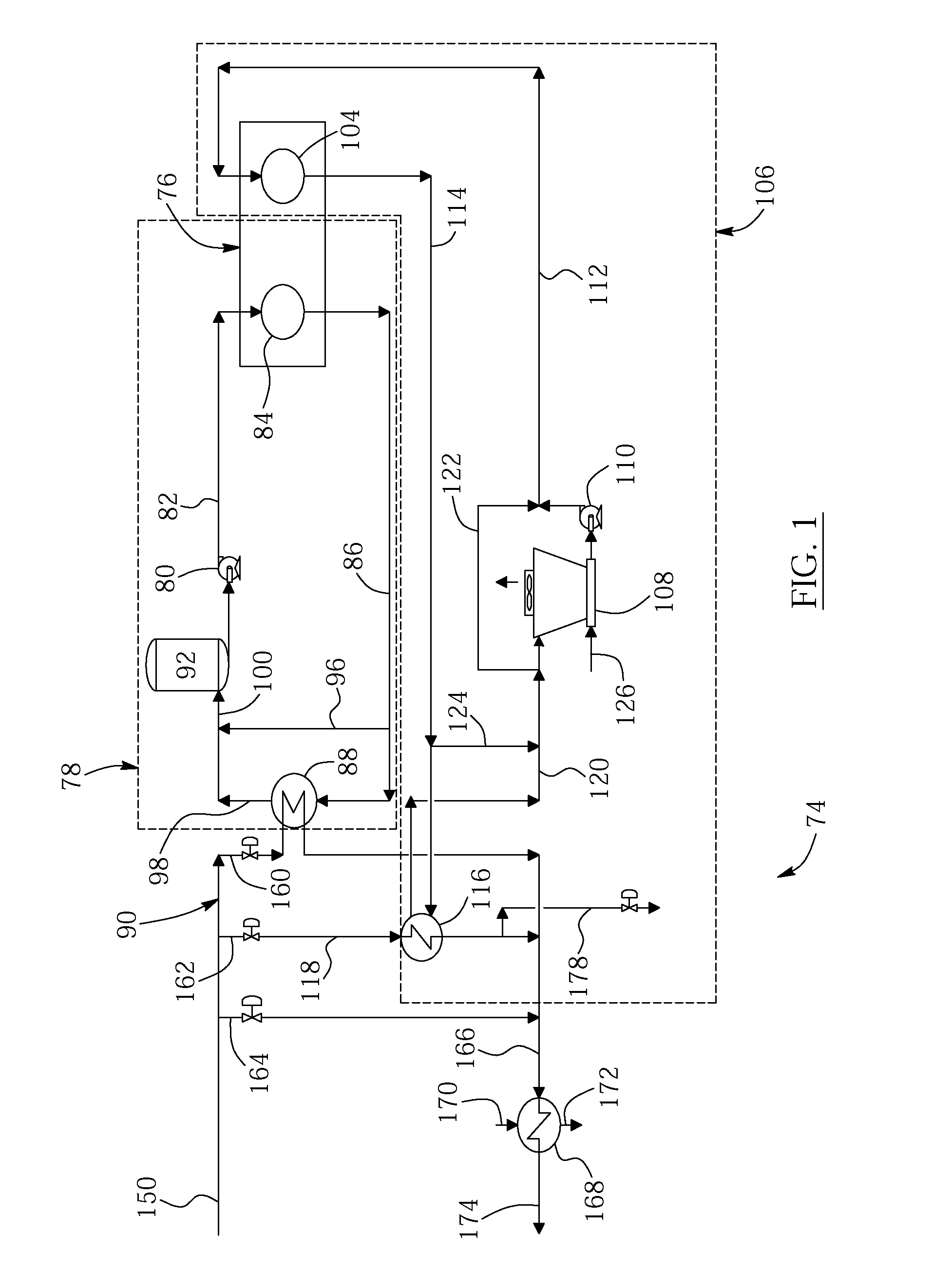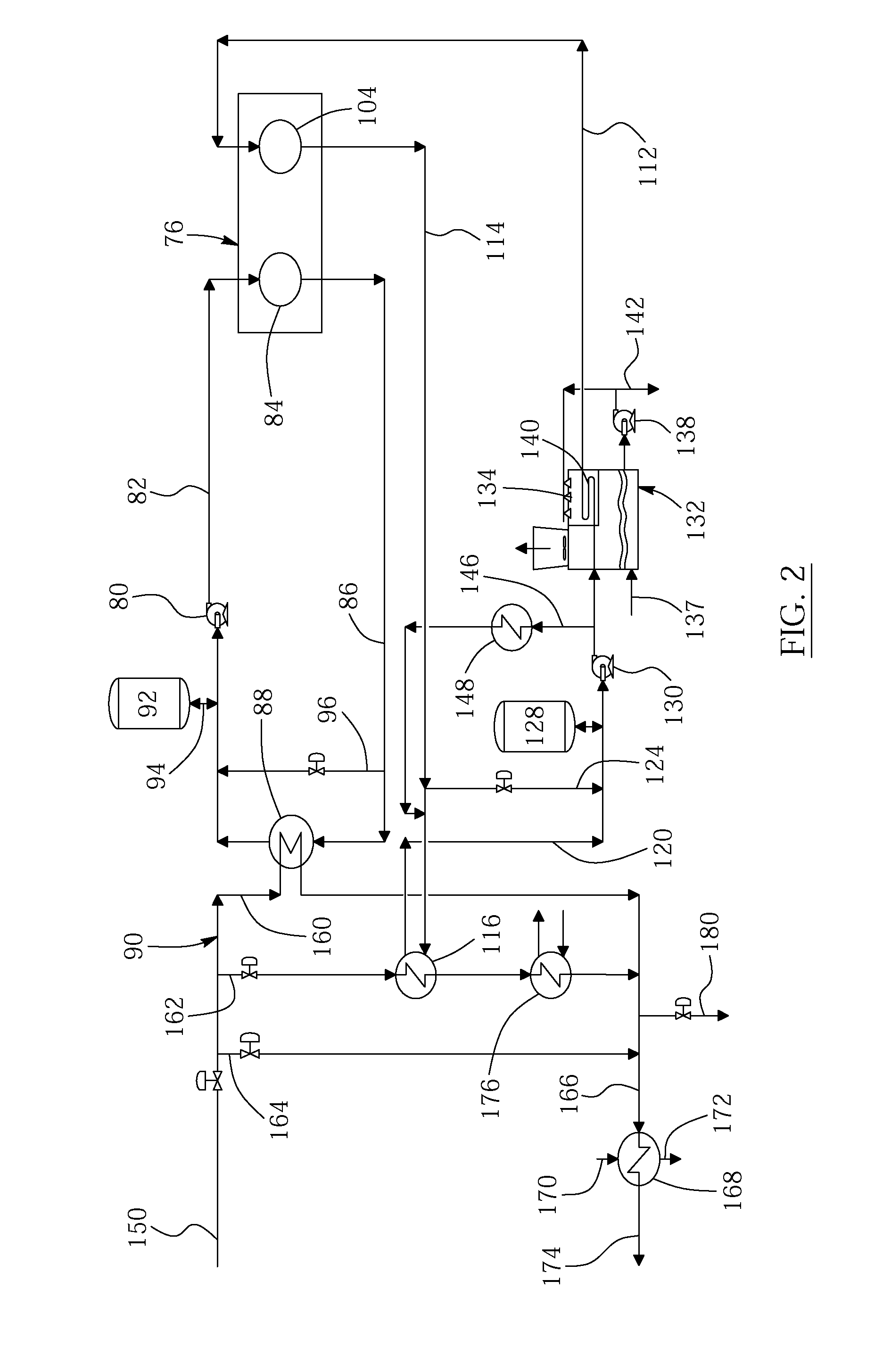Heat Recovery for Bitumen Froth Treatment Plant Integration with Sealed Closed-Loop Cooling Circuit
a technology of closed-loop cooling circuit and heat recovery, which is applied in the direction of hydrocarbon oil treatment, lighting and heating apparatus, and stationary conduit assemblies, etc. it can solve the problems of supplementary heating of process water, poor energy efficiency of open-loop cooling systems that transfer process heat directly, and environmental protection. problems, to achieve the effect of reducing fouling
- Summary
- Abstract
- Description
- Claims
- Application Information
AI Technical Summary
Benefits of technology
Problems solved by technology
Method used
Image
Examples
Embodiment Construction
[0142]In one aspect of the present invention, as illustrated in FIGS. 1, 2, 5 and 6, a heat removal and recovery system is provided to remove heat from a bitumen froth treatment plant and reuse the heat in an oil sands process fluid such as process water which is heated for extraction operations.
[0143]It is noted that a bitumen froth treatment plant preferably includes a froth settling unit (FSU), a solvent recovery unit (SRU) and a tailings solvent recovery unit (TSRU). The FSU receives bitumen froth and after addition of diluent solvent, such as paraffinic or naphthenic solvent, the diluted froth is separated into a high diluted bitumen component and an underflow solvent diluted tailings component. Depending on the particular solvent, solvent-to-bitumen ratio (S / B) and operating conditions used in the FSU, the high diluted bitumen component and the solvent diluted tailings component will have certain compositions and characteristics. The high diluted bitumen component is further t...
PUM
 Login to View More
Login to View More Abstract
Description
Claims
Application Information
 Login to View More
Login to View More - R&D
- Intellectual Property
- Life Sciences
- Materials
- Tech Scout
- Unparalleled Data Quality
- Higher Quality Content
- 60% Fewer Hallucinations
Browse by: Latest US Patents, China's latest patents, Technical Efficacy Thesaurus, Application Domain, Technology Topic, Popular Technical Reports.
© 2025 PatSnap. All rights reserved.Legal|Privacy policy|Modern Slavery Act Transparency Statement|Sitemap|About US| Contact US: help@patsnap.com



